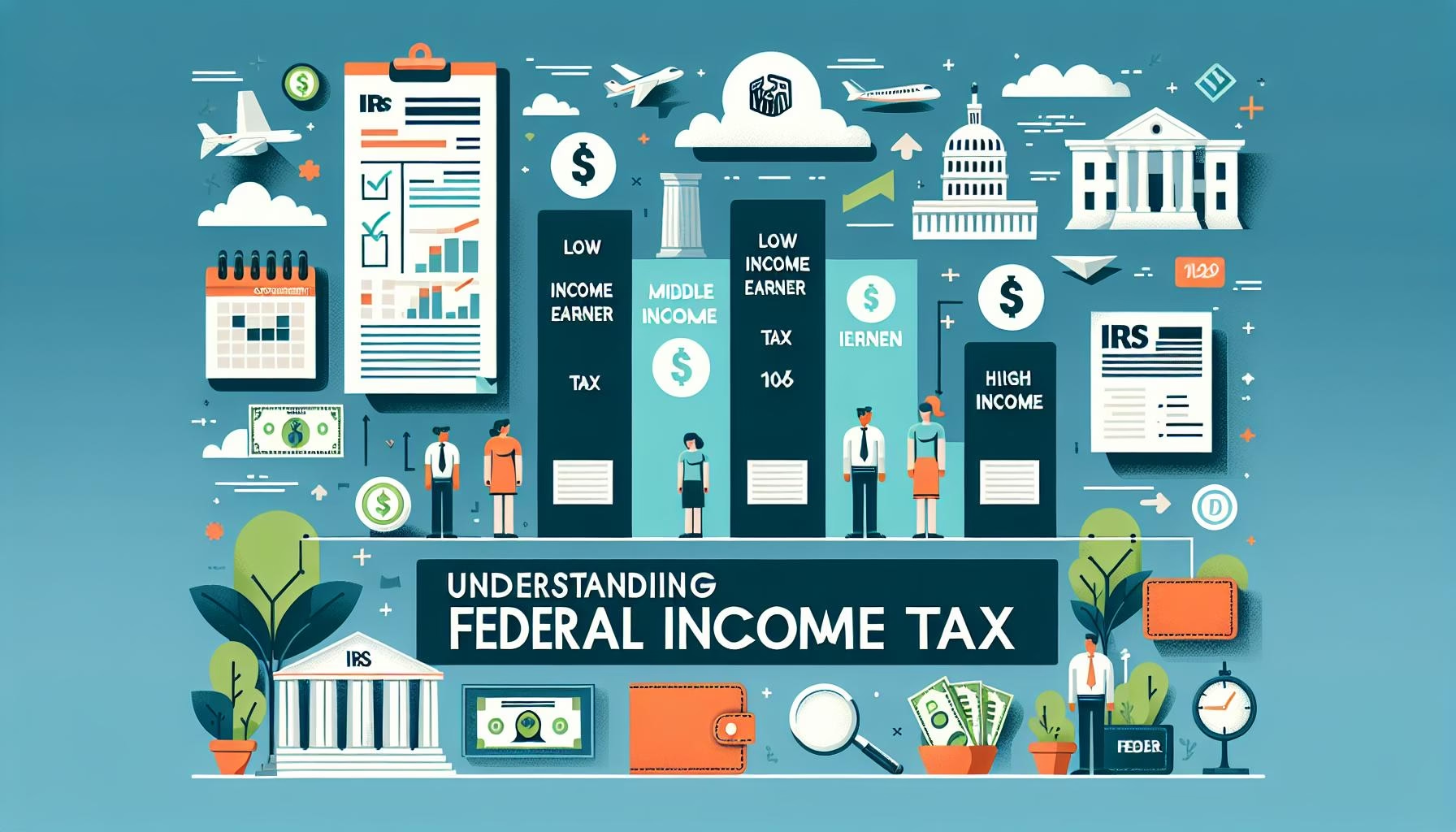Federal income tax plays a vital role in shaping the U.S. economy and funding essential services we rely on each day—everything from national defense to public education and infrastructure. Yet, for many Americans, it’s a topic cloaked in paperwork and confusion. Don’t worry—we’re here to break it all down in a way that makes sense. Whether you’re filing your first tax return or looking to brush up on how taxes really work, these seven must-know facts about federal income tax will help you feel more confident come tax season.
1. Federal Income Tax Powers the Government
Let’s start with the basics. The federal income tax is the U.S. government’s largest source of revenue. It helps keep the country running by funding services like Social Security, healthcare, education, roads, and national defense.
So every time you pay income taxes, you’re directly supporting the systems that keep our lives functioning smoothly. It’s like a big community pot that everyone contributes to for the greater good.
2. The U.S. Tax System is Progressive
In the United States, we use a progressive tax system—which means the more you earn, the higher your tax rate. But don’t worry: you’re only taxed at a higher rate on the income in that specific bracket, not on your entire earnings. This might sound confusing, but here’s a simple analogy:
Imagine climbing a staircase. Each step represents a new tax bracket. As you move up, only the money that falls into the higher step gets taxed at the new rate. The money from earlier steps is taxed at lower rates.
For 2024, there are seven federal income tax brackets ranging from 10% to 37% based on your taxable income and filing status. You can view the current brackets directly here.
3. Not All Income Is Taxed the Same
Here’s where things get a little more interesting. The IRS sees different types of income in different ways. Most people are familiar with wages or salary from a job, but there’s also income from things like investments and rental properties. Each type may be taxed differently.
- Earned income: This includes wages, salaries, and tips. It’s taxed at regular income tax rates.
- Capital gains: These come from selling investments like stocks. They may be taxed at a lower rate, especially if you held the asset over a year (long-term capital gains).
- Passive income: Earnings from rental properties or royalties can also be taxed differently.
Understanding the type of income you have can be a smart way to reduce your tax liability legally.
4. Deductions and Credits Can Lower Your Tax Bill
Here’s some good news: you might not have to pay taxes on your full income thanks to deductions and tax credits. These are like rewards or allowances that reduce your tax burden.
- Deductions: These reduce how much of your income is taxable. You can claim the standard deduction or itemize deductions for things like mortgage interest, charitable donations, or medical expenses.
- Tax credits: These directly reduce how much tax you owe. For example, if you owe $2,000 in taxes and claim a $1,000 credit, you only owe $1,000. Pretty sweet!
Some popular credits include the Earned Income Tax Credit (EITC), Child Tax Credit, and education-related credits like the American Opportunity Credit.
5. Your Filing Status Matters
Your filing status has a big impact on how much tax you pay. There are five basic types:
- Single
- Married Filing Jointly
- Married Filing Separately
- Head of Household
- Qualifying Widow(er)
Choosing the right status isn’t just about your relationship. It can affect your tax brackets, deductions, and even your eligibility for credits. For instance, a single parent might get a better tax break by filing as Head of Household instead of Single.
If you’re unsure, check out our guide on How to Choose the Right Tax Filing Status.
6. Withholding Isn’t One-Size-Fits-All
Ever looked at your paycheck and thought, “Where did all my money go?” That’s tax withholding at work. Employers are required to withhold federal income tax based on the information you provide on your W-4 form.
If too much is withheld, you’ll likely get a refund. If too little is withheld, you might owe the IRS money at tax time. Either way, it’s a good idea to review your W-4 annually—especially after major life changes like marriage or having a child.
The IRS even offers a handy Tax Withholding Estimator to help you figure it out.
7. You Don’t Always Need to File a Tax Return
This might surprise you: not everyone is required to file a federal tax return. It really depends on your income level, filing status, age, and the type of income you earned.
For example, if you’re single and earned less than the standard deduction amount ($13,850 in 2023), you might not have to file—but it could still be a smart move if you’re eligible for a refund or tax credit.
Not sure where you stand? The IRS provides a simple quiz tool to determine if a filing is required.
Final Thoughts: Why Understanding Federal Income Tax Matters
Let’s be real—taxes aren’t anyone’s favorite topic. But the more you know, the more empowered you’ll be to make better decisions with your money. Whether it’s maximizing deductions, adjusting your withholdings, or knowing which credits to claim, understanding federal income tax can actually help you save more and stress less.
And remember, if tax season starts to feel overwhelming, you’re not alone. There are plenty of resources out there, including online tax tools, certified accountants, and the IRS’s own taxpayer help centers.
Want to dive deeper? We recommend reading the full article on Investopedia: What Is Federal Income Tax?
Knowledge is power—and when it comes to federal income tax, a little knowledge goes a long way.

